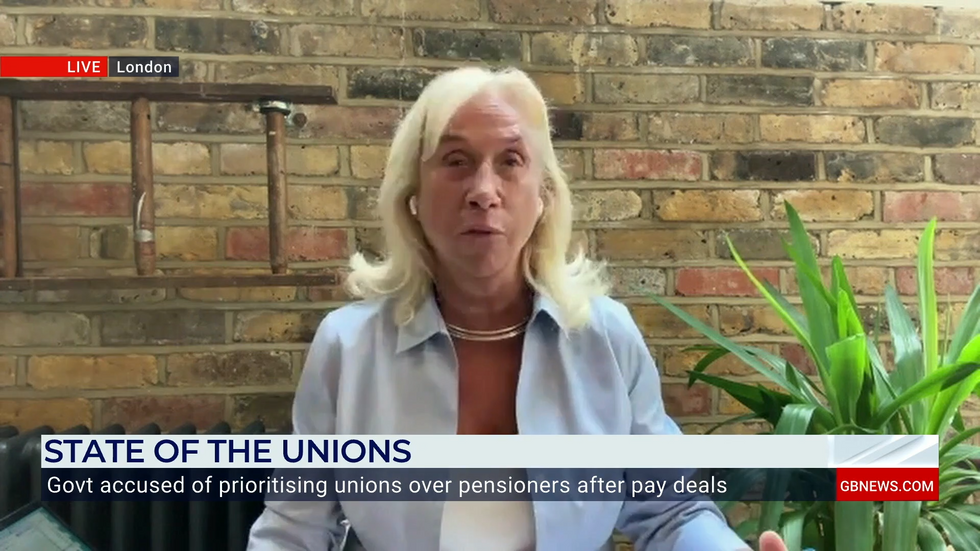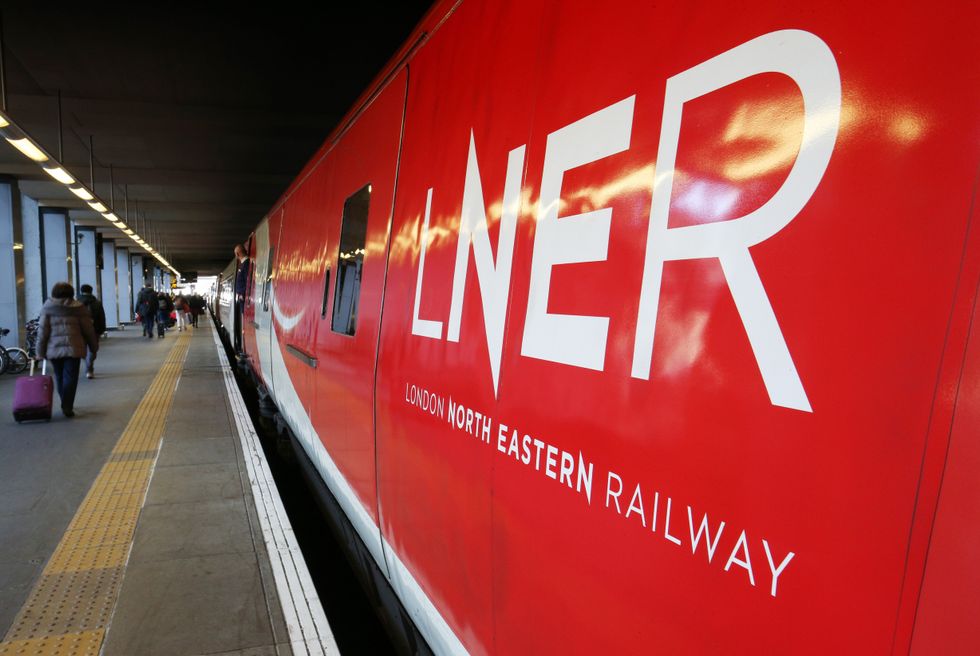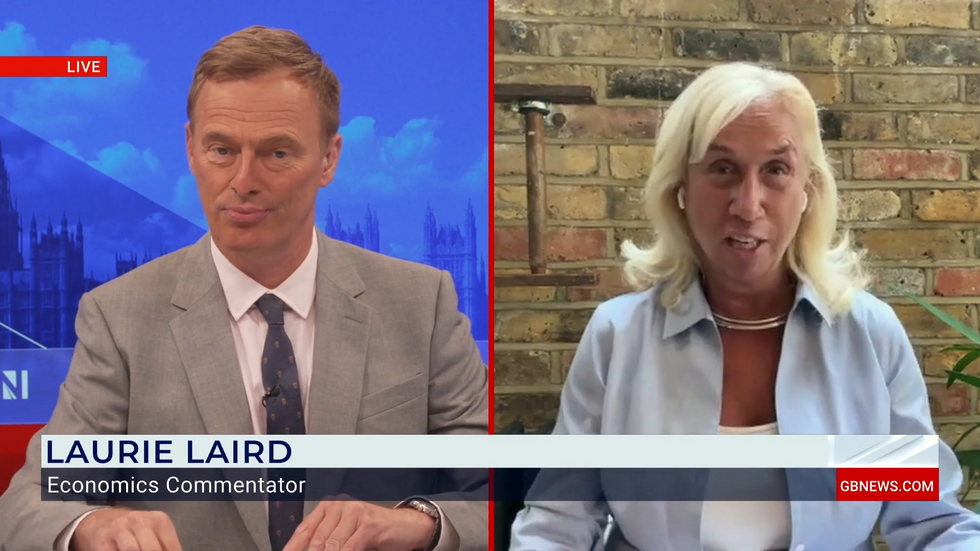Train drivers are "in a good bargaining position," as they announce further strikes, economics expert Laurie Laird has claimed.
This comes as train drivers on the London North Eastern Railway (LNER) line have announced fresh strikes just two days after train drivers were offered a union-backed pay deal as part of a separate dispute.
Speaking to GB News, Laurie Laird said: "If you want people to take these jobs, you're probably going to have to pay them more.
"I know these numbers, and I'm no apologist for unions here, but public sector pay has lagged behind.

"Inflation has lagged behind private sector pay for over a decade. So the unions are going to argue that there is some justification here, that we have been underpaid for a decade and we're trying to catch up.
"A lot of these unions are in a pretty good bargaining position because there are shortages across some of the industries that they work in.
LATEST DEVELOPMENTS:
- Can Britain pull back from the brink? Voters rank the four issues DESTROYING the country
- Scottish Conservative deputy leader QUITS amid allegations of Tory leadership plot
- 'Pro-lifers have been subject to two-tier policing for a very long time,' rages campaigner
"We know that there have been shortages in medicine and nursing shortages, and there will soon be a shortage of 100,000 railway workers and subway workers.
"The average age of a railway worker is 45 and people are going to retire soon. So you can argue if you want people to do these jobs, we have to all acknowledge that public services are not what we want them to be.
"So you're going to have to get you're going to have to pay these people if we want them to do the work."
The LNRER strikes are different to the long-running pay dispute and are based on union claims of "bullying" behaviour by bosses.

Speaking to Sky News, The union's general secretary Mick Whelan said: "The company has brutally, and repeatedly, broken diagramming and roster agreements, failed to adhere to the agreed bargaining machinery, and totally acted in bad faith.
"We are not prepared to put up with their boorish behaviour and bullying tactics", he said.
"The continued failure of the company to resolve long-standing industrial relations issues has forced us into this position."

LNER said it would continue to work with the union to "find a way to end this long-running dispute which only damages the rail industry".
A statement read: "Our priority focus will be on minimising disruption to customers during the forthcoming Aslef strikes, which sadly will continue to cause disruption and delays."
The strikes are expected to last for 22 days and will be every Saturday between 31 August and 9 November and on every Sunday from 1 September to 10 November.
from GB News https://ift.tt/VPGBYcb
Train drivers are "in a good bargaining position," as they announce further strikes, economics expert Laurie Laird has claimed.
This comes as train drivers on the London North Eastern Railway (LNER) line have announced fresh strikes just two days after train drivers were offered a union-backed pay deal as part of a separate dispute.
Speaking to GB News, Laurie Laird said: "If you want people to take these jobs, you're probably going to have to pay them more.
"I know these numbers, and I'm no apologist for unions here, but public sector pay has lagged behind.

"Inflation has lagged behind private sector pay for over a decade. So the unions are going to argue that there is some justification here, that we have been underpaid for a decade and we're trying to catch up.
"A lot of these unions are in a pretty good bargaining position because there are shortages across some of the industries that they work in.
LATEST DEVELOPMENTS:
- Can Britain pull back from the brink? Voters rank the four issues DESTROYING the country
- Scottish Conservative deputy leader QUITS amid allegations of Tory leadership plot
- 'Pro-lifers have been subject to two-tier policing for a very long time,' rages campaigner
"We know that there have been shortages in medicine and nursing shortages, and there will soon be a shortage of 100,000 railway workers and subway workers.
"The average age of a railway worker is 45 and people are going to retire soon. So you can argue if you want people to do these jobs, we have to all acknowledge that public services are not what we want them to be.
"So you're going to have to get you're going to have to pay these people if we want them to do the work."
The LNRER strikes are different to the long-running pay dispute and are based on union claims of "bullying" behaviour by bosses.

Speaking to Sky News, The union's general secretary Mick Whelan said: "The company has brutally, and repeatedly, broken diagramming and roster agreements, failed to adhere to the agreed bargaining machinery, and totally acted in bad faith.
"We are not prepared to put up with their boorish behaviour and bullying tactics", he said.
"The continued failure of the company to resolve long-standing industrial relations issues has forced us into this position."

LNER said it would continue to work with the union to "find a way to end this long-running dispute which only damages the rail industry".
A statement read: "Our priority focus will be on minimising disruption to customers during the forthcoming Aslef strikes, which sadly will continue to cause disruption and delays."
The strikes are expected to last for 22 days and will be every Saturday between 31 August and 9 November and on every Sunday from 1 September to 10 November.




0 Comments
Don't share any link